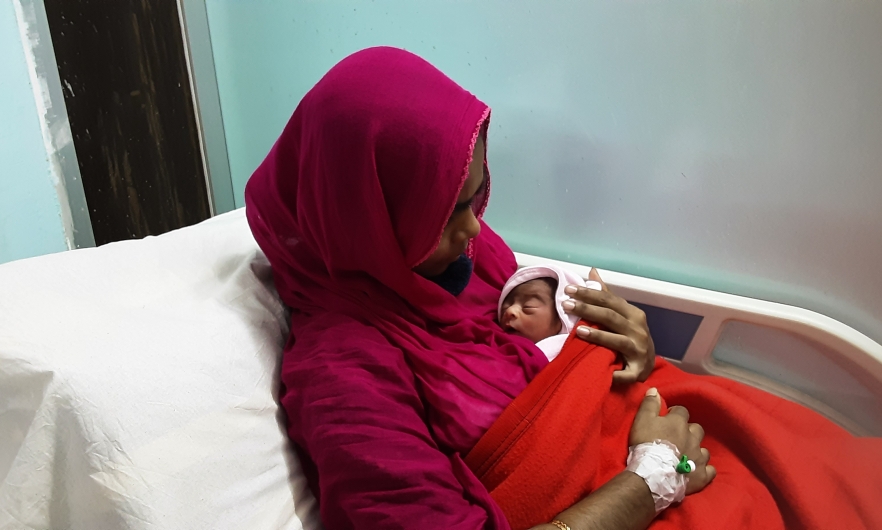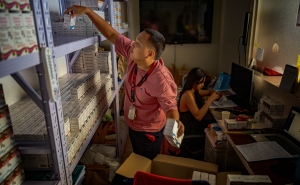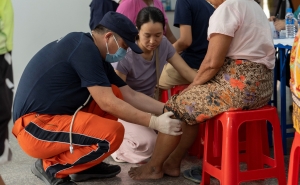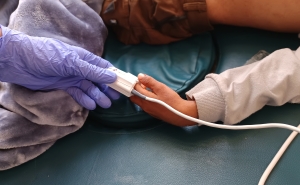Johns Hopkins Researchers Receive Grant to Help Improve Newborn Care in Bangladesh

Researchers at the Johns Hopkins Bloomberg School of Public Health received funding to help improve care provided to preterm infants and infants born with a low birth weight in Bangladesh. Researchers, in collaboration with the Bangladeshi Ministry of Health and Family Welfare and other Bangladeshi institutions, will focus on developing a new model for the provision of immediate kangaroo mother care, which is early, prolonged, and continuous skin-to-skin contact and breastfeeding between a mother and her preterm or low birth weight infant immediately after birth. Once the model has been developed, researchers will implement it in select districts and then scale it up to additional districts across Bangladesh.
The project is part of a multi-country study, coordinated by the WHO, aiming to develop and scale up a way to promote immediate kangaroo mother care (iKMC) and incorporate it into existing care services for preterm and low birth weight infants in health systems in Bangladesh, Ethiopia, India, and Nigeria. The Bangladesh arm of the study will be co-led by Abdullah Baqui, DrPH ’90, MPH ’85, MBBS, professor in the Department of International Health at the Bloomberg School. The study is funded by the Bill & Melinda Gates Foundation.
Preterm infants and infants born with a low birth weight are more vulnerable to an increased risk of death and developmental challenges, accounting for the majority of all neonatal deaths worldwide. The majority of these types of neonatal deaths occur in sub-Saharan African and South Asian countries. Kangaroo mother care has been shown to reduce neonatal mortality and risk of infections and lead to increased weight, length, and head circumference, maternal-infant attachment, and improved child development.
Immediate kangaroo mother care differs from regular kangaroo mother care, which is begun once the baby is clinically stable. By that time, however, half to two-thirds of deaths among preterm and low birth weight babies have already occurred. With iKMC, care begins as soon as two hours after birth. Researchers will investigate how to better improve coverage and effectiveness of iKMC in reducing newborn mortality and improving the health of the most vulnerable babies in low- and middle-income countries.
The study will be conducted in two phases: phase 1 will include formative research to develop and implement an optimized model of iKMC in 1–2 districts of each country. Phase 2 will scale up the optimized model to six districts in each country. In addition to iKMC, the model will include other newborn care such as respiratory and feeding support and monitoring and prevention for treating infections. As the iKMC model is scaled up, researchers will evaluate the impact of incorporating the model into each country’s newborn care system on neonatal mortality.
In addition to Baqui, who will lead the Bangladesh arm of the study, in-country collaborators include Mohammod Shahidullah, professor at Bangabandhu Sheikh Mujib Medical University, and Salahuddin Ahmed, executive director for the Projahnmo Research Foundation. Baqui is the Director of the International Center for Maternal and Newborn Health, based in the Department of International Health. Other Johns Hopkins researchers working on the project include Rasheda Khanam, PhD, MPH, MBBS, associate scientist, Kayur Mehta, MD, MSc, assistant scientist, and Snehal Ghodke, MPH, research associate in the Department of International Health.





